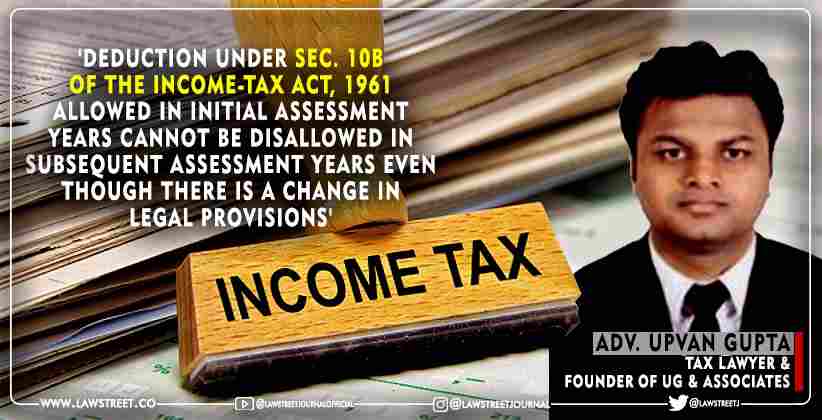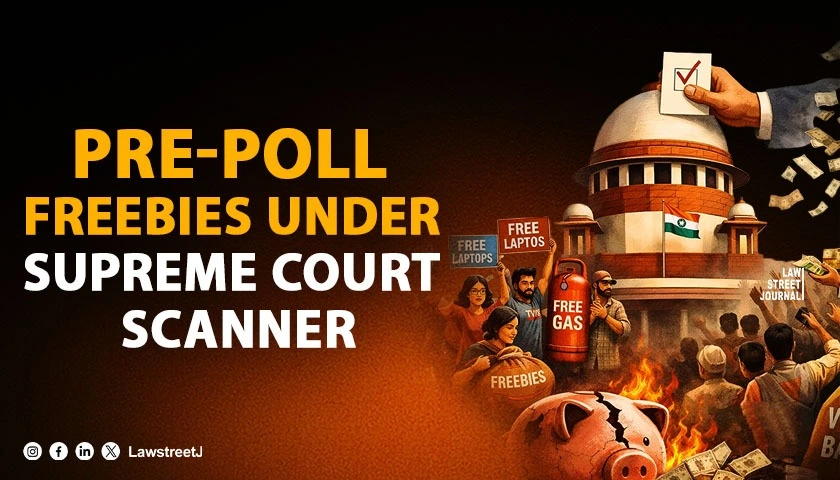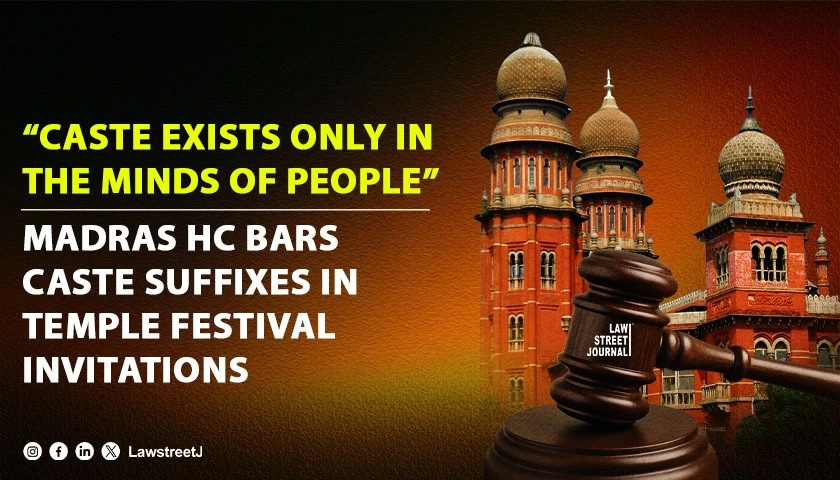A favorable decision has been pronounced by the Income Tax Appellate Tribunal Chennai in the matter of Handy Waterbase India Private Limited, wherein it has been held that deduction under Section 10B of the Income-tax Act, 1961 allowed in initial assessment years cannot be disallowed in subsequent assessment years, during the tax holiday period, even though there is a substantive change in legal provisions.
The verdict was announced in the matter (M/s. Handy Waterbase India Pvt. Ltd. v. DCIT) that was heard by a bench comprising V. Durga Rao, Judicial Member and G. Manjunatha, Accountant Member. The appellant was represented by Advocate Upvan Gupta and CA T. Banusekar.
The Income Tax Appellate Tribunal, Chennai in pronouncing its decision overruled the order of Commissioner of Income Tax and further clarified that production of pasteurised crab meat from dead crabs is included in the term 'manufacture' to get deductions under Section 10B of the Income Tax Act, 1961.
The appellant is a company that processes dead crab to pasteurised meat crab suitable for human consumption. The appellant started a 100% Export Oriented Unit in 2004 and was continuously granted deductions in its income tax on profits generated by the unit for the next seven years under Section 10B of the Income Tax Act, 1961. The production activity was considered as manufacturing for export thus entitling the company to get a complete exclusion from income tax for 10 years.
But the Assessment Officer for the appellant did not allow the tax exclusion from assessment 2010-2011 citing the inclusion of a definition for the term 'manufacture' in Section 2 (29BA) of the Income Tax Act, 1961 by the Finance Act, 2009. The Assessment Officer believed that the activity of the appellant was not covered by the definition of the term 'manufacture' and thus was not eligible for deductions under Section 10B of the Income Tax Act, 1961.
The new definition of manufacturing in Section 2(29BA) states that manufacture with its grammatical variations means a change in a non-living physical object or article or thing resulting in the transformation of the object or article or thing into a new and distinct object or article or thing having a different name, character and use or bringing into existence a new and distinct object or article or thing with a different chemical composition or integral structure.
The counsel for the appellant argued that the appellants activity falls under the definition of 'manufacture' as the processing of dead crab (non-living thing) into pasteurized crab meat results in a transformation of dead crab into a distinct object with a different name. It was submitted that the transformation involved an eleven-step process using industrial chemical, labour and machinery.
It was also argued that the appellant's unit was certified as a manufacturing unit by various government departments. Also, the appellant had a legitimate expectation that he will get continued deductions for the initial 10 years as a unit dedicated to 100% export and the fact that such deductions were granted for the initial seven years further adds to the expectation. It was submitted that the nature of activities of the appellant has not changed and a change in the definition should not adversely affect the interest of the company.
The tribunal after hearing both sides held that the matter needs to be considered in the light of the principles of the doctrine of legitimate expectations and doctrine of promissory estoppel. The tribunal in its verdict observed that:
The doctrine of promissory estoppels seeks to protect rights of a promisee or aggrieved party against the promisor. Thus, as per said principles whatever be the nature of function the Government is discharging, it is subject to the rule of promissory estoppel. Therefore, the privilege granted to the assessee u/s.10B of the Act cannot be withdrawn by subsequent clarification or amendment due to the doctrine of promissory estoppel. Similarly, the doctrine of Legitimate Expectation means that a person may have a reasonable expectation of being treated in a certain way by administrative authorities owing to some consistent practice in the past or an express promise made by the concerned authority. The concept of legitimate expectations means that administrative decision-makers should be bound by certain representations which they make to individuals who stand to be affected by their orders.
The tribunal held that the doctrine of legitimate expectation holds that a change in definition cannot be used to disentitle the appellant when he was allowed deductions for seven years and when its activities had not changed.
The Court stated, "We find that there is no change in facts prevailing at the time when deduction was allowed to the assessee in the assessment year2004-05 and in the assessment year 2009-10 when deduction was denied. Therefore, we are of the considered view that unless there is change in facts, the AO cannot take a different view for denying deduction claimed u/s.10B of the Act. Hence, we are of the considered view that the assessee is entitled for deduction u/s.10B of the Act in respect of profit derived from 100% export."
On another issue of whether exchange gain / loss fluctuation is part of export turnover or not, the AO, according to the petitioner had excluded export fluctuation gain on conversion of export proceed held in EEFC account from business proceeds for computing deduction u/s.10B of the Act and the same was added under the head Income from other sources resulting in double addition.
To this, the court held that the ld.CIT(A) had not adjudicated the issue although the assessee has taken a specific ground challenging the findings of the AO. It therefore redirected the issue to thr file of the ld.CIT(A) for reconsideration.
Similarly the issues of exclusion of expenses from export turnover and total turnover and deduction u/s.10B in respect of expenses disallowed and added back to total income were also redirected to the ld.CIT(A) for consideration on the grounds that they were failed to be looked upon or were not adjudicated upon correctly.






